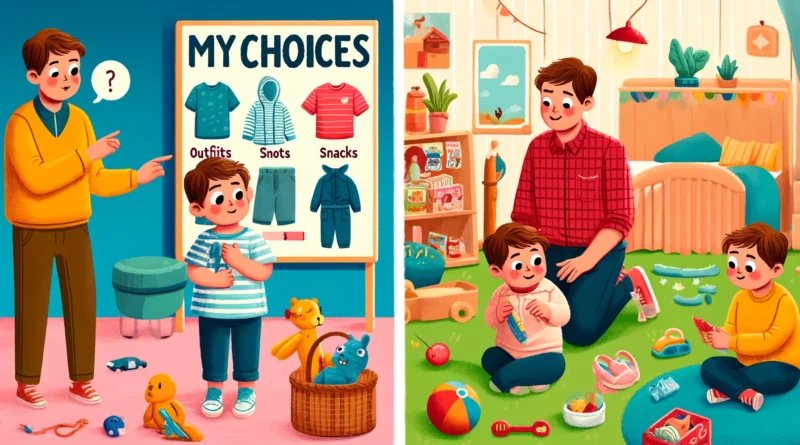How to Teach Young Children About Making Decisions
Decision-making is an important life skill, and even young children can begin learning how to make thoughtful choices. By offering small opportunities to decide for themselves, you help children develop confidence, independence, and problem-solving abilities. Teaching decision-making early empowers kids to trust their instincts and learn from their experiences.
Why Decision-Making Skills Matter
- Builds independence and confidence
- Encourages critical thinking and planning
- Teaches consequences and responsibility
- Supports emotional regulation
- Fosters a sense of control and identity
Option 1: Offer Simple Choices During Daily Routines
Activity Idea:
Give two options instead of open-ended questions. For example:
- “Do you want the red cup or the blue one?”
- “Would you like to wear the striped shirt or the dinosaur shirt?”
Limit choices to avoid overwhelm but give real autonomy.
What Kids Learn:
- That their opinions matter
- How to weigh simple options
- Comfort in choosing confidently
Tool Suggestion:
Use a “My Choices” board with pictures of daily options like snacks, clothes, or activities.
Option 2: Use Decision-Making Games and Scenarios
Activity Idea:
Create pretend play situations like:
- “Your toy friend lost his shoe. What should he do?”
- “You’re planning a picnic. What should we pack?”
Talk through possible outcomes of each choice.
What Kids Learn:
- Thinking ahead
- Evaluating consequences
- Making confident, thoughtful decisions
Book Suggestion:
What Should Danny Do? by Ganit & Adir Levy — a fun interactive book where kids make decisions for the main character.
Other Ways to Practice Decision-Making
- Let them help plan: Meals, outfits, weekend activities
- Talk through your own decisions: “I’m choosing this road because it’s less busy.”
- Celebrate smart thinking: “You chose to clean up before snack time—that was responsible!”
- Encourage do-overs: “That didn’t work out—what could you do next time?”
Final Thoughts
Decision-making starts small—but it makes a big difference. By offering choices, talking through outcomes, and encouraging reflection, you help your child become a confident thinker. And as they grow, those early choices become stepping stones toward strong, thoughtful independence.
